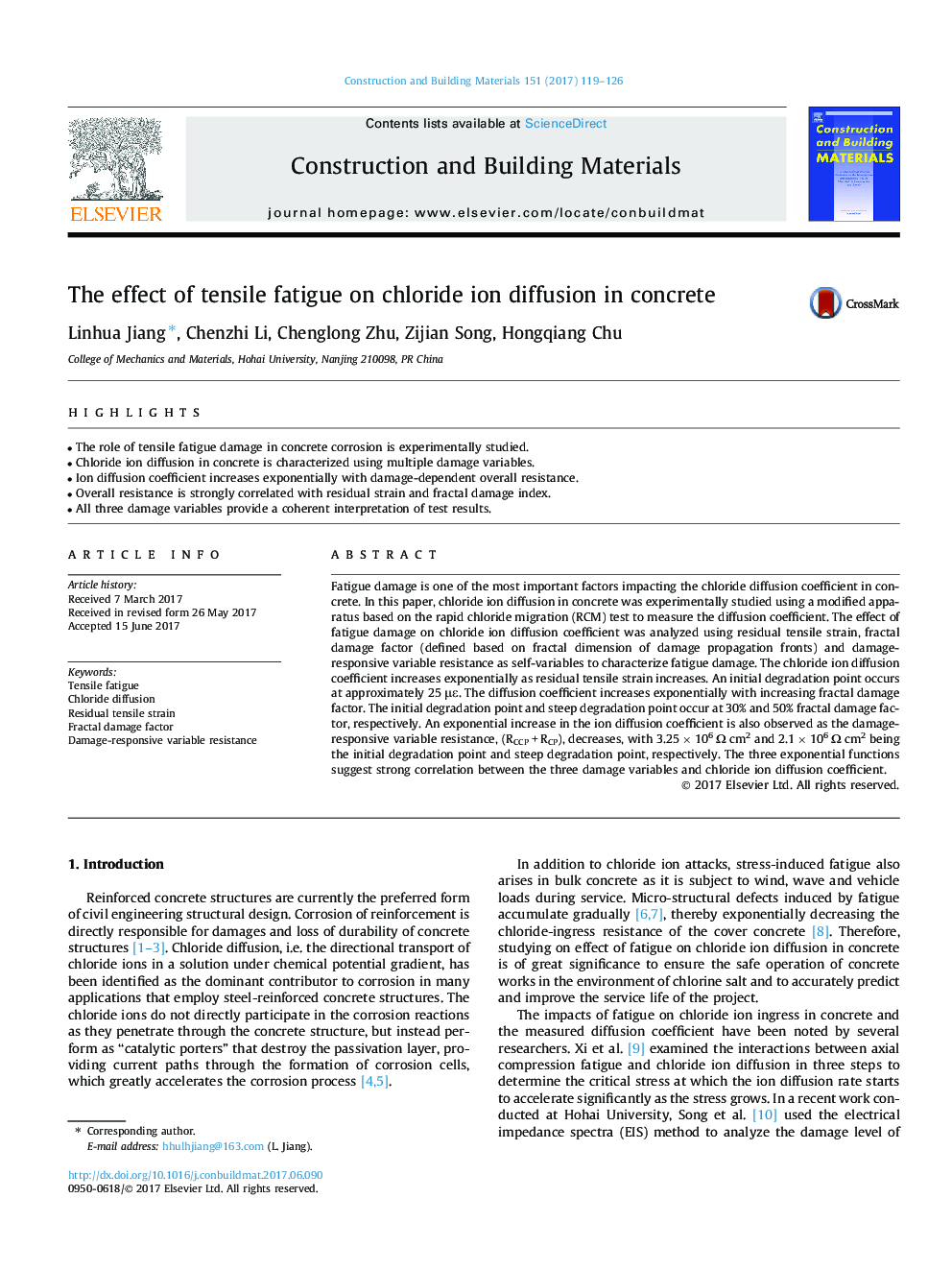| Article ID | Journal | Published Year | Pages | File Type |
|---|---|---|---|---|
| 4918168 | Construction and Building Materials | 2017 | 8 Pages |
Abstract
Fatigue damage is one of the most important factors impacting the chloride diffusion coefficient in concrete. In this paper, chloride ion diffusion in concrete was experimentally studied using a modified apparatus based on the rapid chloride migration (RCM) test to measure the diffusion coefficient. The effect of fatigue damage on chloride ion diffusion coefficient was analyzed using residual tensile strain, fractal damage factor (defined based on fractal dimension of damage propagation fronts) and damage-responsive variable resistance as self-variables to characterize fatigue damage. The chloride ion diffusion coefficient increases exponentially as residual tensile strain increases. An initial degradation point occurs at approximately 25 με. The diffusion coefficient increases exponentially with increasing fractal damage factor. The initial degradation point and steep degradation point occur at 30% and 50% fractal damage factor, respectively. An exponential increase in the ion diffusion coefficient is also observed as the damage-responsive variable resistance, (RCCP + RCP), decreases, with 3.25 Ã 106 Ω cm2 and 2.1 Ã 106 Ω cm2 being the initial degradation point and steep degradation point, respectively. The three exponential functions suggest strong correlation between the three damage variables and chloride ion diffusion coefficient.
Keywords
Related Topics
Physical Sciences and Engineering
Engineering
Civil and Structural Engineering
Authors
Linhua Jiang, Chenzhi Li, Chenglong Zhu, Zijian Song, Hongqiang Chu,
